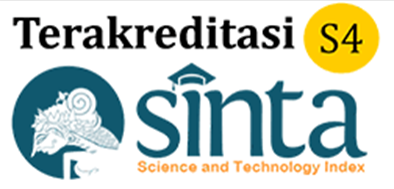Standar Pelayanan Aplikasi Bursa Kerja Online pada Dinas Tenaga Kerja Kota Depok
Abstract
The Depok government provides Employment application service standards, especially to overcome employment problems in its jurisdiction. However, in practice, there are still minimal critical issues, namely service standards that are not yet optimal. On this basis, this research aims to outline the problems of service standards that require appropriate correction in practice. Then, the method adopted is descriptive qualitative, which attempts to reveal the analysis results systemically and logically based on the content analyzed. The results found were that of the six dimensions analyzed, two of them still did not meet the expected standards, namely service procedures and competency of service providers. Meanwhile, obstacles such as server and network instability and some officers' lack of friendliness hinder the service process. However, four other dimensions are considered to meet the standards well, such as service completion times that meet expectations and no costs charged to the public during the service process.
References
AW, A. M. F., Karim, M., & Ma’ruf, A. (2019). E-Service Dalam Bursa Kerja Pada Dinas Tenaga Kerja Dan Transmigrasi Di Kabupaten Gowa. Kolaborasi: Jurnal Administrasi Publik, 5(1), 14–30.
Bovaird, T., & Löffler, E. (2023). Understanding public management and governance. In Public management and governance (pp. 3–13). Routledge.
Creswell, J. W., & Báez, J. C. (2020). 30 essential skills for the qualitative researcher. Sage Publications.
Gibson, J., Jiang, Y., & Susantono, B. (2023). Revisiting the role of secondary towns: How different types of urban growth relate to poverty in Indonesia. World Development, 169, 106281.
Mulyadi, D., Gedeona, H. T., & Afandi, M. N. (2016). Administrasi publik untuk pelayanan publik: Konsep dan praktik administrasi dalam penyusunan SOP, standar pelayanan, etika pelayanan, inovasi untuk kinerja organisasi.
Nguyen, N. T. H., Nguyen, D., Vo, N., & Tuan, L. T. (2023). Fostering public sector employees’ innovative behavior: the roles of servant leadership, public service motivation, and learning goal orientation. Administration & Society, 55(1), 30–63.
Principles, G. (2019). Operational Guidelines for Fair Recruitment & Definition of Recruitment Fees and Related Costs. International Labour Office–Fundamental Principles and Rights at Work Branch, Labour Migration Branch. Geneva: International Labor Organization.
Serdeczny, O., Andrijevic, M., Fyson, C., Lissner, T., Menke, I., Schleussner, C.-F., Theokritoff, E., & Thomas, A. (2024). Climatic risks to adaptive capacity. Mitigation and Adaptation Strategies for Global Change, 29(1), 10.
Wang, Q., Gan, K.-P., Wei, H.-Y., Sun, A.-Q., Wang, Y.-C., & Zhou, X.-M. (2024). Public service motivation and public employees’ turnover intention: the role of job satisfaction and career growth opportunity. Personnel Review, 53(1), 99–118.
Wibawa, S., & Rosyadi, S. (2021). Pengantar Manajemen Publik. Depok: Khalifa Mediatama.
Wouters, S., Janssen, M., Lember, V., & Crompvoets, J. (2023). Strategies to advance the dream of integrated digital public service delivery in inter-organizational collaboration networks. Government Information Quarterly, 40(1), 101779.
Copyright (c) 2024 Jurnal Manajemen dan Ilmu Administrasi Publik (JMIAP)

This work is licensed under a Creative Commons Attribution 4.0 International License.













